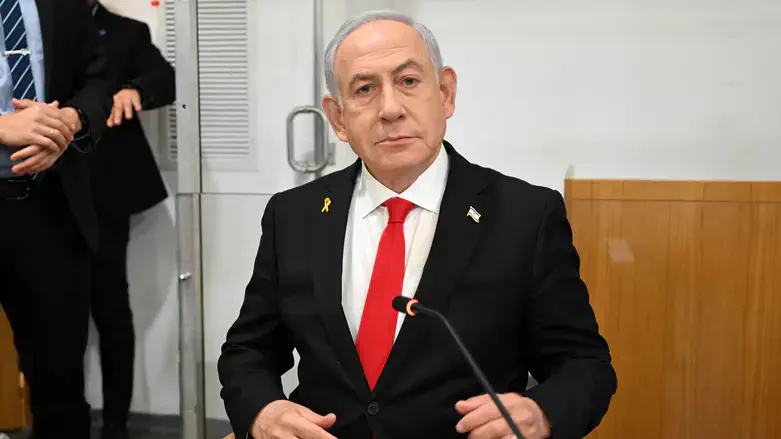
Prime Minister Benjamin Netanyahu addressed Israel's decision to prevent all goods and supplies from entering the Gaza Strip today (Sunday) at the start of a government meeting, following Hamas's rejection of the ceasefire extension proposed by US envoy Steve Witkoff.
Netanyahu noted that a security discussion was held last night with the participation of the Minister of Defense, the heads of the coalition factions, senior security officials, and the Israeli negotiating team, at the end of which it was decided to adopt the outline of President Trump's envoy, Steve Witkoff, for a temporary ceasefire during Ramadan and Passover. "We are fully coordinating with President Trump and his people," he said.
The Prime Minister updated that according to the information Israel's possesses, Hamas is currently holding 59 hostages - up to 24 of whom are believed to be alive and at least 35 of whom are dead. "We are not giving up on any of them, and we are determined to bring them all home," he stressed.
According to the outline, on the first day of the ceasefire, half of the hostages will be released in one go, and at the end of it - if an agreement is reached - the rest will be released. Netanyahu noted that Witkoff proposed the agreement after he was impressed that at this stage it was not possible to bridge the positions of Israel and Hamas on Phase 2 of the current agreement. "He even defined his proposal as a bridge for negotiations on Phase 2. Israel is ready for this," Netanyahu said.
Referring to allegations of Israel violating the agreements, he emphasized that "Israel is not in violation, while Hamas has violated the Phase 1 agreement time and time again." He said, "According to the original agreement, Israel can return to fighting after the 42nd day if it is convinced that the negotiations are ineffective. This clause was supported by a side letter from the previous American administration and also received the backing and support of the Trump Administration."
Netanyahu emphasized that "Israel agreed to the Witkoff outline because we are committed to returning our hostages," but Hamas stuck to its refusal. "If Hamas changes its position, Israel will immediately enter into negotiations to implement the outline."
He further clarified that the ceasefire will not continue without progress on the issue of the hostages. "If Hamas thinks that it will be possible to continue the ceasefire, or to benefit from the conditions of Phase One, without us receiving the hostages, it is greatly mistaken."
Referring to the achievements so far, Netanyahu said: "We have completed Phase 1 with great success. We have released 30 hostages alive and brought home eight fallen soldiers for burial in Israel. Few believed that we would succeed in this - but we acted with determination and firmness, and we succeeded."
He continued by accusing Hamas of taking control of the humanitarian aid entering Gaza. "Hamas is currently taking control of all the supplies and goods that are sent to the Gaza Strip. It is abusing the Gazan population who are trying to receive the aid, it is shooting at them, and is turning humanitarian aid into a terrorist budget directed against us. We will not agree to this in any way."
He reiterated his position that if Hamas does not release the hostages, "there will be additional consequences, and I will not detail them here." He concluded that so far 196 hostages have been returned, and noted: "I remind you that at the beginning of the war there were those who doubted our ability to return even one hostade. And again - we demand the release of all our hostages - both the living and the dead. We are committed to this. I am committed to this. And with God's help - we will not stop or remain silent until we achieve this."

